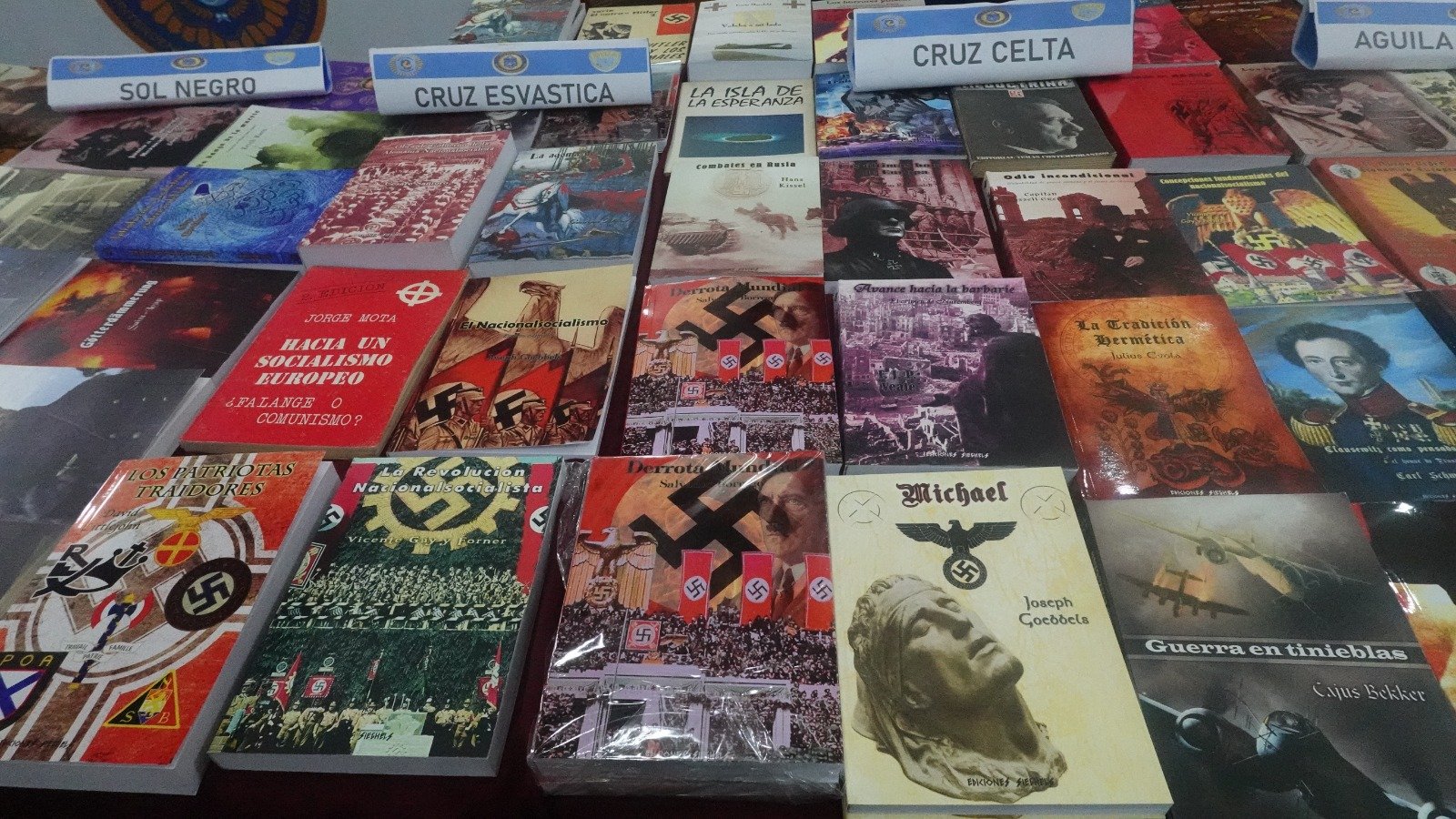(JTA) — Police in Argentina have raided and closed down a publishing house that they say was distributing Nazi literature online.
They also arrested a man who was first raided for distributing Nazi propaganda in violation of Argentine law more than a decade ago. At the time, Pablo Giorgetti was a university student; now, he is accused of running Libreria Argentina, deemed by the country’s leading Jewish organization of being “the largest Nazi and antisemitic book distributor in Argentina.”
The Jewish group, DAIA, spurred the two-year investigation into Libreria Argentina after finding a book it published for sale online and denouncing it publicly in December 2021.
“It is astonishing that there are people producing this type of material and worrying that there are people who consume it,” DAIA Vice President Marcos Cohen said during a press conference at the Federal Police headquarters announcing the raid. “That is the challenge we have to work on.”
DAIA has long called attention to the proliferation of Nazi propaganda, artifacts and literature in Argentina, which was a postwar refuge for Nazis including Adolf Eichmann. Five years ago DAIA revealed tens of thousands of documents that show how Argentina supported the Nazis.
The raid was announced by Federal Police officials Juan Carlos Hernandez and Alejandro Ñamandu along with the DAIA’s president, Jorge Knoblovits. They said more than 200 books had been seized at a house in San Isidro, an affluent neighborhood in the northern area of Buenos Aires. The police also seized electronic and printing devices and a large amount of Nazi propaganda.
Books had been printed and were ready to be distributed featuring images of swastikas, Iron Crosses and other emblems of the Nazi Party, according to images of the seized trove that DAIA posted online.
The Jewish organization first found the books on Mercado Libre, Latin America’s biggest online retailer, which is in the process of curbing the availability of Nazi material through its sales platform.
“We are shocked by how profuse the material is,” Cohen said. “We have to work on punishment but we also have a lot to do in education because the first thing we have to eradicate are the readers of this material.”
JTA has documented Jewish history in real-time for over a century. Keep our journalism strong by joining us in supporting independent, award-winning reporting.






